
Lit Hub's Most Anticipated Books of 2019
What We're Looking Forward to, the First Half and Then Some
AUGUST AND BEYOND
 Jess Row, White Flights
Jess Row, White Flights
Graywolf, August 6
A much-needed investigation into whiteness in American fiction and culture from the author of Your Face in Mine, White Flights compares the notion of “white flight” in the world to a kind of literary “white flight”—the habit of white authors to set their work in isolated, non-diverse spaces, and asks how we might re-approach writing as “a reparative act.” (ET)
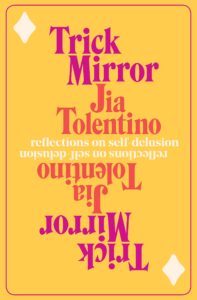 Jia Tolentino, Trick Mirror
Jia Tolentino, Trick Mirror
Random House, August 6
You heard it right: Jia Tolentino, your culture captain and mine, is publishing a book of nine original essays in 2019. Random House describes the book as “an enlightening, unforgettable trip through the river of self-delusion that surges just beneath the surface of our lives,” which I don’t doubt for a minute, and which honestly, we all desperately need. “The book is loosely organized around the concept of self-delusion—coming out of this animating idea that there are a lot of new incentives to be hyper-self-conscious, to build up a lot of cognitive dissonance around the self,” Tolentino said in an interview. “Social media is programmatically set up to make your identity seem like the home base for the entire world. Three of the essays are going to be personal, sort of trying to figure out how I have been fooling myself. I was on a reality show when I was 16—spent a month in Puerto Rico filming it—and I’m going to finally watch it and write about it.” Apparently it was like the Real World/Road Rules Challenge except with high schoolers, to which I say: tell me more. (ET)
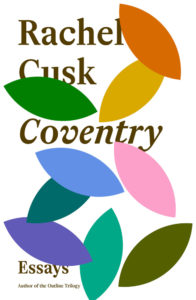 Rachel Cusk, Coventry
Rachel Cusk, Coventry
FSG, August 8
From the brilliant mind that brought us the Outline trilogy comes a collection of essays on family, politics, and, well, does it even matter what else? Won’t you read it anyway? Cusk has a sharp eye and a sharp tongue, and she’s not afraid to use them both. To tide you over in case you missed it: the Granta essay that the collection is named after. (KY)
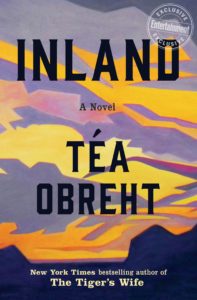 Téa Obreht, Inland
Téa Obreht, Inland
Random House, August 13
Dare I say: holy crap. EIGHT YEARS after her glorious debut The Tiger’s Wife, Obreht is finally back with what her publishers call “a stunning tale of perseverance” set in the Arizona Territory in 1893. Yes friends, it’s a Western. “Some years ago, while doing research in the Southwest, I happened upon a frontier story about the surprising intersection of two very different journeys,” Obreht told EW. “Puzzling out how such disparate lives could come together, and what effect each might have on the other, led me to Inland. I’ve always been drawn to the small, personally meaningful stories that support a life, the kinds of stories people tell themselves about themselves, and the way place makes us who we are—often at great cost.”
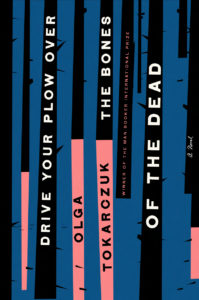 Olga Tokarczuk, Drive Your Plow Over the Bones of the Dead
Olga Tokarczuk, Drive Your Plow Over the Bones of the Dead
Riverhead, August 13, 2019
Writer, activist, and public intellectual Olga Tokarczuk has been renowned in her native Poland and across Europe for over two decades, but it was only with her 2018 Man Booker International Prize win for the critically-acclaimed Flights that she became a (literary) household name in the English-speaking world. In August, Tokarczuk fans will be treated to another newly translated gem, the supremely titled Drive Your Plow Over the Bones of the Dead, which is billed as “a provocative exploration of the tug between sanity and madness, justice and tradition, autonomy and fate.” (DS)
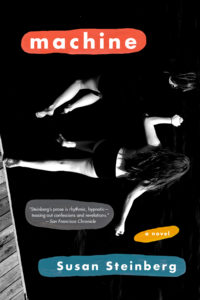 Susan Steinberg, Machine
Susan Steinberg, Machine
Graywolf, August 20
Susan Steinberg takes everything you loved about her short story collections (Spectacle, anyone?) and brings them to this new tragedy: a hazy summer night in which one girl drowned. The voice of the story—sometimes singular, sometimes with other echoes—will guide and haunt you as it tries to make sense of what happened. (KY)
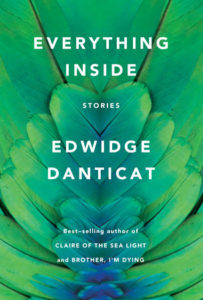 Edwidge Danticat, Everything Inside
Edwidge Danticat, Everything Inside
Knopf, August 27
Edwidge Danticat gutted me with her honesty and scope in Brother, I’m Dying, and I’m excited to see her language for emotion and her imagination run wild in this collection of short stories. (KY)
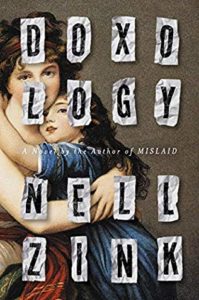 Nell Zink, Doxology
Nell Zink, Doxology
Ecco, August 27
Even if Nell Zink wasn’t a charmingly irascible semi-public presence (on Twitter and elsewhere) I’d be excited for her new novel. Zink is one of those particular writers whose propulsive readability is powered by an immediately recognizable style—sardonic, slyly unreliable, papercut sharp—that never fails to leave a mark. (JD)
 Deborah Levy, The Man Who Knew Everything
Deborah Levy, The Man Who Knew Everything
Bloomsbury, September 3
If you’ve blazed through Elena Ferrante, Lucia Berlin and Clarice Lispector and yearn for another wild writer of ferocious and hilarious precision, look no further. Two-time Man Booker finalist Deborah Levy has been one of the publishing world’s great comeback stories of the last decade, roaring back into view with her exquisite country house novel, Swimming Home, and a duet of memoirs that ought to be on any budding writer’s nightstand. Her new novel pivots between two car accidents on Abbey Road, one in 1989, the other in 2016, the latter of which leaves her peripatetic hero in a state of bewildering limbo, maybe seeing ghosts. (JF)
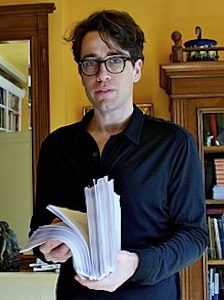 Benjamin Moser, Sontag
Benjamin Moser, Sontag
Ecco, September 3
Benjamin Moser, whose acclaimed biography of Brazilian writer Clarice Lispector was nominated for the National Book Critics Circle Award in 2009, was doing research for his authorized biography of Susan Sontag for three years before he even started writing. In a 2014 interview, Moser said he’d been traveling from “Bosnia to Oahu and almost everywhere in between, and now I have to make sense of a very complicated and difficult life.” This is a compelling pairing of writer and subject, certainly my most anticipated biography of 2019. (AR)
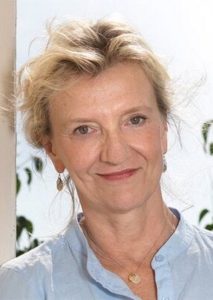 Elizabeth Strout, Olive, Again
Elizabeth Strout, Olive, Again
Random House, September 3
Elizabeth Strout’s sequel to her beloved, Pulitzer Prize-winning novel-in-stories Olive Kitteridge will hit shelves this fall, and chronicle the next decade in its eponymous heroine’s life. “It turns out—I just wasn’t done with Olive,” Strout said in a press release. “It was like she kept poking me in the ribs, so I finally said, ‘Okay, okay . . . ‘” (ET)
 Naja Marie Aidt, Carl’s Book
Naja Marie Aidt, Carl’s Book
Coffee House, September 9
This astonishing memoir is one of the rawest and most intelligent books about grief you will ever read. It is also a warm, vivid portrait of Danish writer Aidt’s son, a chef and searcher who died tragically in his early twenties when a home-made batch of hallucinogenics led to a terrible accident. Drawing on the author’s diaries in the aftermath, poets of lacunae like Anne Carson and Ingrid Christensen, and narrating the boy’s life and upbringing, it is a powerful formal assertion of the heartbreaking illegibility of loss, even as all one wants to do with the missing is keep them alive, present, somehow. (JF)
 Margaret Atwood, The Testament
Margaret Atwood, The Testament
Nan A. Talese, September 10
The minute the van door slammed on Offred at the conclusion of The Handmaid’s Tale, it was only a matter of time before Atwood would bring us back to Gilead. Now in the middle of a global movement by right wing governments to get there first, in real life, Atwood has at long last announced a sequel is on its way. It will be narrated by three female characters and takes place 15 years after Offred’s last scene and that’s about all we know about the book until September. The countdown will be hard but it may give one hope that, just as Atwood turned out a new paradigm of sexism in the abortion doctor-murdering 80s, chances seem high that in this age of surprise demolition, she’ll prove a novel of ideas and storytelling can still make us see and feel anew. (JF)
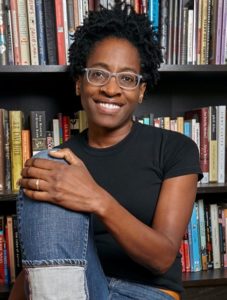 Jacqueline Woodson, Red at the Bone
Jacqueline Woodson, Red at the Bone
Riverhead, September 17
In October, we learned that National Book Award winner Woodson would publish two adult books with Riverhead, and this is the first. Scant details on this one, but the publisher calls it “an extraordinary new novel about two black families from different social classes, and how the decisions of the young people in the families have long-lasting consequences for generations to come.” Good enough for me. (ET)
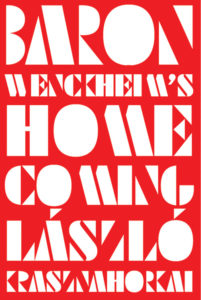 László Krasznahorkai, tr. Ottilie Mulzet, Baron Wenckeim’s Homecoming
László Krasznahorkai, tr. Ottilie Mulzet, Baron Wenckeim’s Homecoming
New Directions, September 24
“I’ve said a thousand times that I always wanted to write just one book,” Krasznahorkai told The Paris Review. “I wasn’t satisfied with the first, and that’s why I wrote the second. I wasn’t satisfied with the second, so I wrote the third, and so on. Now, with Baron, I can close this story. With this novel I can prove that I really wrote just one book in my life. This is the book—Satantango, Melancholy, War and War, and Baron. This is my one book.” He swears that he will never write another novel after this one. “When you read it, you’ll understand,” he says. “Baron Wenckheim’s Homecoming must be the last.” Seems like a good time for a massive Krasznahorkai re-read.
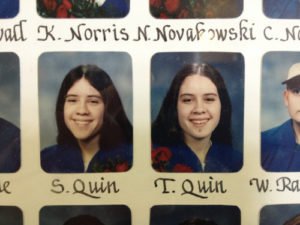 Tegan Quin and Sara Keirsten Quin, High School
Tegan Quin and Sara Keirsten Quin, High School
MCD, September 24, 2019
After eight studio albums, countless collaborations and tours, and more than two decades of making music (first under the name “Sara and Tegan”!), the origin of Tegan and Sara is now the stuff of myth, particularly for a generation of queer adults who grew up alongside them during the expansion of LGBTQ rights in the U.S. Now, the two Canadian rockers will bring their earliest stories to a memoir on stumbling towards adulthood and everything they each encountered along the way. Having spent a not-small part of my life blasting their music, I couldn’t be more excited to hear more from them. (CS)
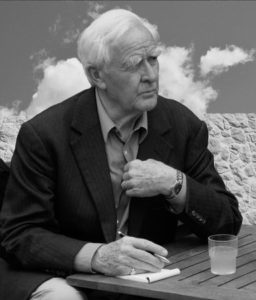 John le Carré, Agent Running in the Field
John le Carré, Agent Running in the Field
Viking, October 22
John le Carré’s 25th novel is set in London in 2018, and will apparently be tackling “the division and rage at the heart of our modern world.” Otherwise, we’ve got very few details to work with: the publisher tells us that the protagonist, “in a desperate attempt to resist the political turbulence swirling around him, makes connections that will take him down a very dangerous path.” Which tells us exactly nothing, so we’ll all just have to wait patiently—or steal an advance copy. (ET)
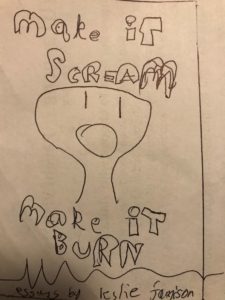 Leslie Jamison, Make It Scream Make It Burn
Leslie Jamison, Make It Scream Make It Burn
October
From my internet sleuthing, the only information I can find about Leslie Jamison’s new book is that it’s an essay collection (which, presumably, includes this title essay) and that the author’s stepdaughter has already created the best cover art of 2019 for it. (DS)
Emily Temple
Emily Temple is the managing editor at Lit Hub. Her first novel, The Lightness, was published by William Morrow/HarperCollins in June 2020. You can buy it here.



















